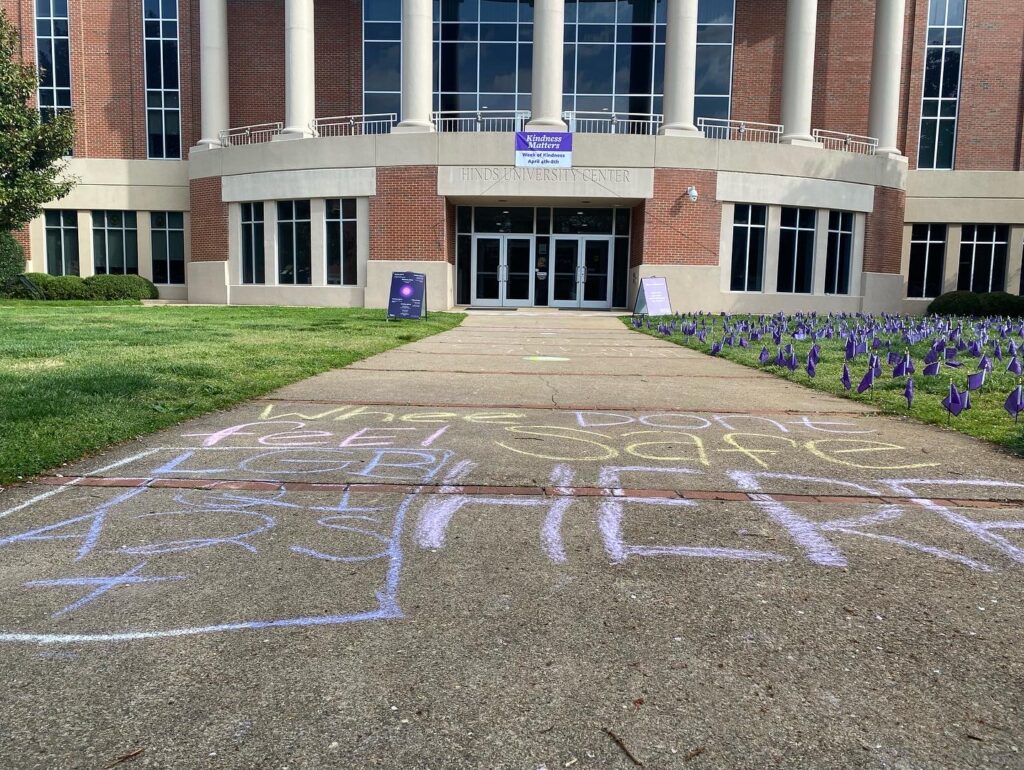
Safety is an essential aspect of student life. Regardless of sexual orientation, gender, race or ethnicity, living on or off-campus, or other aspects of one’s identity, students need resources that support them.
Night of PRIDE was hosted Thursday, March 24 to do just that.
Night of PRIDE was primarily organized by Gwyn Howard, a graduate assistant with the Masters of Education Higher Education Student Affairs (HESA) program at WCU.
It provided resources for members and allies of the LGBTQ+ community, a safe space for members to be themselves and connect with their fellow community, and entertainment to further encourage individuals to be who they are, which is a luxury LGBTQ+ individuals do not always have.
In all, about 100 individuals attended.
Those who talked to at the event said that pride to them symbolizes solidarity and belonging. See the video story about the event for student-run WCTV.
Oftentimes, members of the LGBTQ+ community can’t be themselves. Lack of acceptance from families, schools, or communities can cause identity and safety issues for members of the community.
These issues are only furthered by anti-LGBTQ+ politics. Florida’s House Bill 1557 (dubbed the “Don’t Say Gay” bill by opponents) aims to prohibit the discussion of sexual orientation and gender identity in primary schools. Texas Governor Greg Abbott called on individuals to report parents of trans kids if it seems that trans kids are receiving gender confirmation treatment.
Examples of lack of acceptance members of the community can face from families include individuals being kicked out of home for coming out.
A study from Chapin Hall at the University of Chicago found that LGBTQ+ youth are 120% more likely to experience homelessness than non-LGBTQ+ youth. True Colors United found that around 7% of youth identify as LGBTQ+ but they make up roughly 40% of homeless youth.
LGBTQ+ youth also face danger from legal action, lawsuits and bills. Families have sued over gender-related issues before, such as in the case of the Littlejohns vs. Leon County School Board.
MSNBC reported the lawsuit made it clear that the child had tried to consult with their parents and the parents were not receptive, so the child had to turn to other resources, like schools. MSNBC made it sound as though the parents sued the school for the school’s attempt in helping the child come to terms with their nonbinary gender identity.
“In effect, this lawsuit is mostly about Littlejohn being mad that her child’s feelings were considered over her own. Similar lawsuits are now explicitly authorized under the ‘Don’t Say Gay’ bill’s provisions,” MSNBC summarized.
Bills like Florida’s HB 1557 are damaging to LGBTQ+ individuals. The Trevor Project reported that LGBTQ+ youth who were exposed to LGBTQ+ topics in school had 23% lower odds of reporting a suicide attempt in the past year and that LGBTQ+ youth who had access to spaces like schools to support and affirm their identity reported lower rates of attempted suicides.
This shows a need for safe spaces where individuals can be themselves, such as events like Night of PRIDE. Howard commented on the need for safe places for LGBTQ+ members in the face of oppression.
“Until society can be [systemically] changed and LGBTQIA+ people can exist freely in society without hatred, oppression and loss of rights, safe spaces are one of the various ways we can support community members… So by providing a safe space they have the opportunity to be themselves,” they responded over email.
Howard also stated that Night of PRIDE allowed students to “gather and feel secure” in a place where they could “be authentically themselves,”; however, the campus still has a long way to go.
“The campus culture is still generally hostile towards the queer community, the university has been asked by students and staff alike to make solid steps towards equity and safety for this population,” they said. She also mentioned the “lack of response of the university as a whole” in reference to the publicity the Gender Unicorn/Fox News fiasco got.
“[It] made students feel as though their safety and sense of belonging was not a priority to the university, which is why we are seeing an increase in advocacy and demands,” Howard said.
While there is still a long way to go in promoting LGBTQ+ feelings of safety, there are still resources available for students. These include Sylva Pride, which will host its second annual event over the summer, ICA, and the Sexuality And Gender Alliance at WCU. Students can also turn to CAPS and other services.


